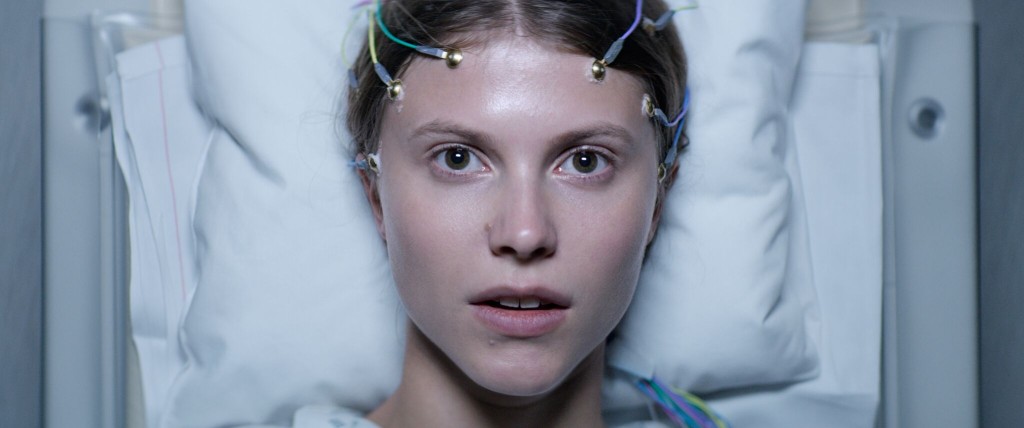Easily one of my favorites of the fest so far, Thelma is one of those rare movies that is so rich, so stylish, and so thematically dense that it merits – demands – multiple viewings. This isn’t to say that the film is cryptic. It’s very straightforward. But the rate at which the plot information is released is so perfectly metered that with each new reveal coes a re-contextualization of everything which came before it.
Here’s the part where I try to describe to plot without giving away too much. Having gone into this with literally no information about it short of “starts at 3:50,” I can speak to the notion that the less one knows before watching Thelma, the better. Thelma is about a young woman (Eili Harboe; I bet you can guess her character’s name) setting out for college after what appears to be a relatively sheltered life. She was raised a strict Catholic under the thumb of her stern father (Henrik Rafaelsen) and wheelchair-bound mother, but the environment of college begins to erode Thelma’s shell.
At the same time she starts suffering from mysterious seizures. The source of these fits confound her doctors, but we in the audience see that their effects reach well beyond just Thelma.
That’s all I can really say.
Stark, affecting imagery punctuates Thelma’s dreamlike tone in small bursts, making it feel as if anything could happen at any moment — and it usually does. A certain sequence involving a fire on a canoe is my favorite moment of anything I’ve seen at this year’s festival. It’s going to haunt me for sure, which is always a sign of masterful storytelling. Grier’s previous efforts, none of which I’ve seen, are all widely regarded as great (most notably Oslo, August 31st), but Thelma is his first dalliance with genre storytelling. He nails it.

